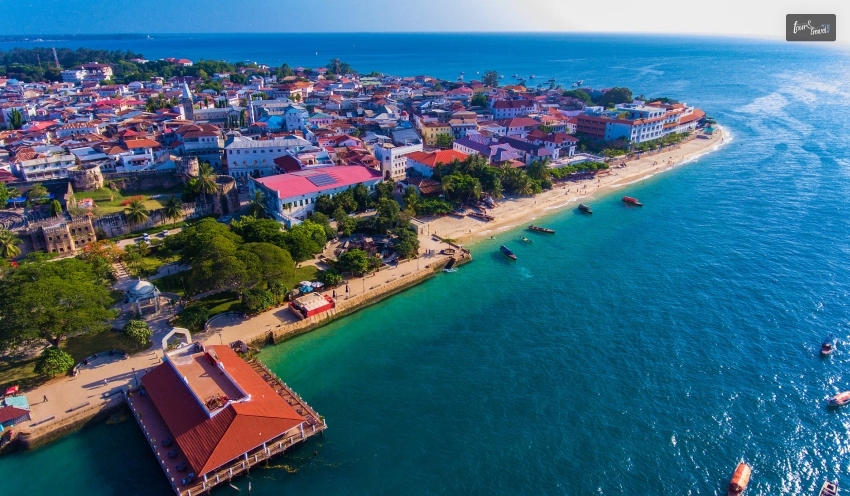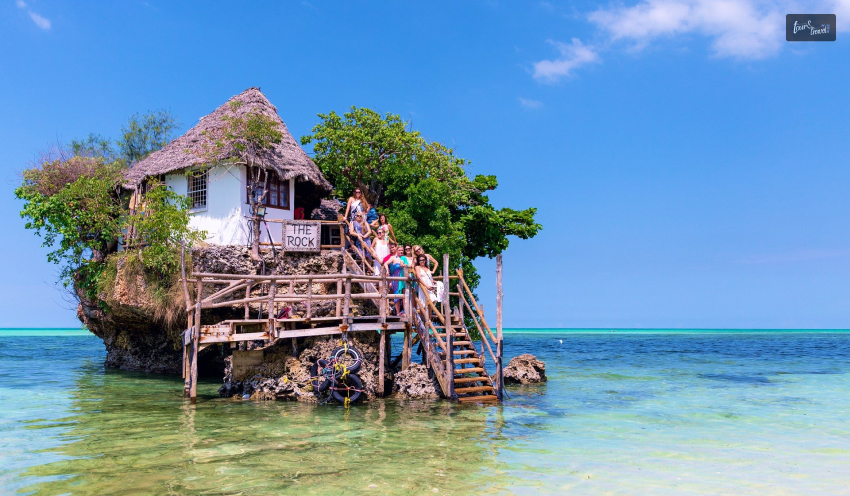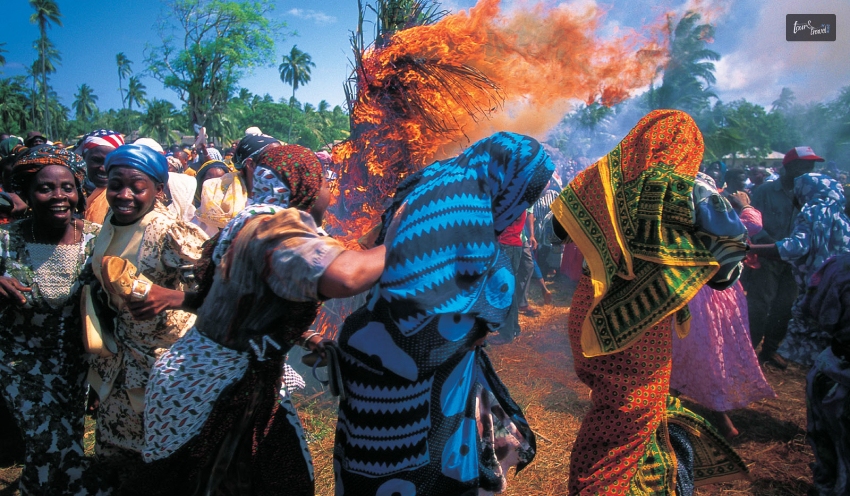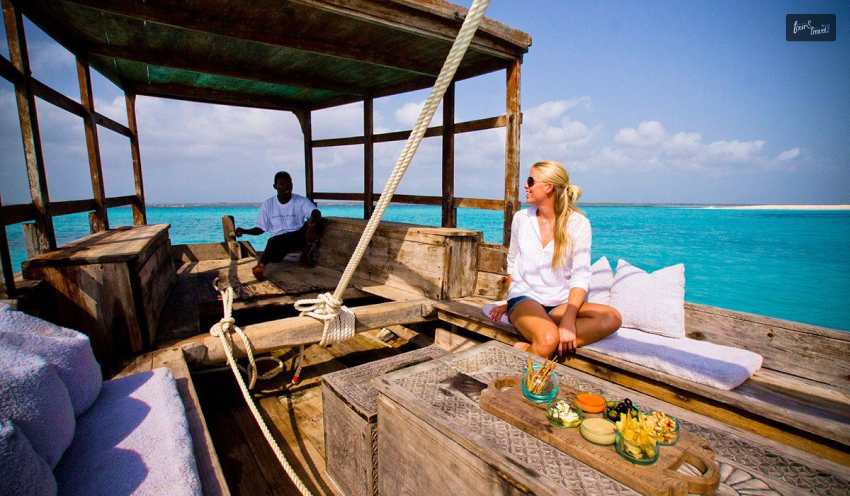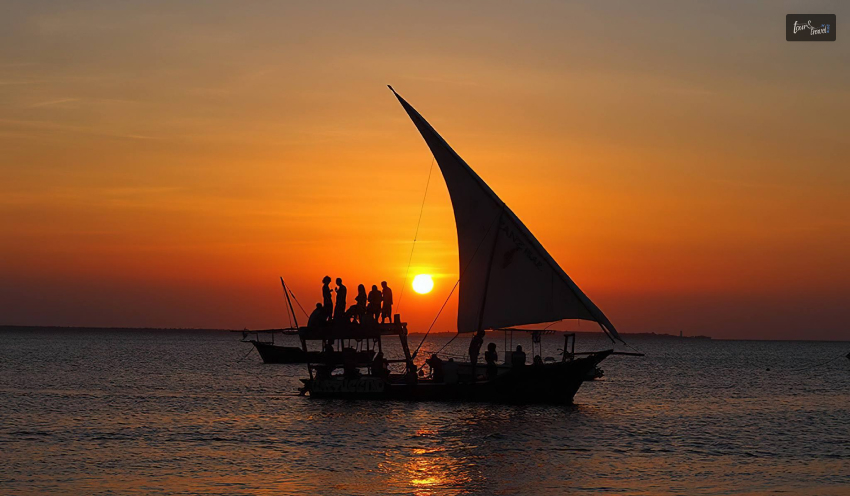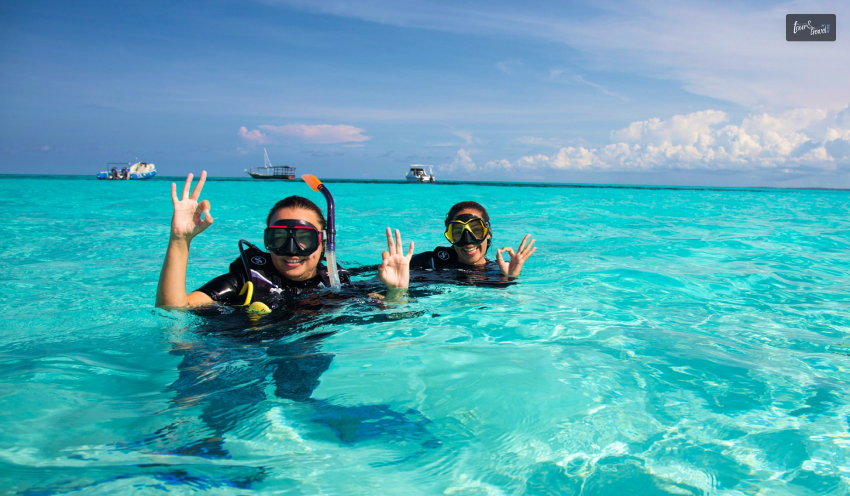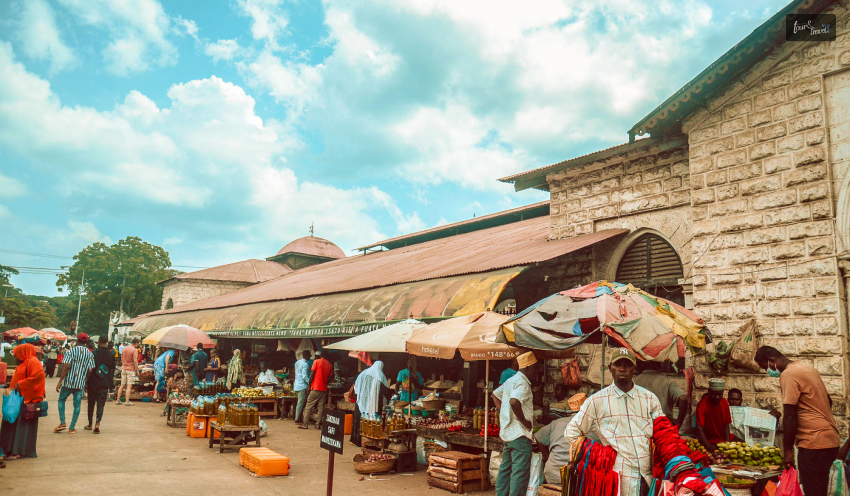A Kotor Montenegro Hostel Guide: Find A Budget-Friendly Accommodation And Social Hub For Travelers
BY Sibashree Nov 29, 2025
Hostels run by local families are the most budget-friendly accommodation in Kotor, Montenegro. Like the cats protect the city, these hostels offer tourists a place to relax and rest. However, as I mentioned in my Kotor Montenegro budget travel guide, the hostel I stayed in was not the most famous one. The humble place of my pen-friend (or email-friend 📧) was more than an accommodation for me. First of all, he has a lovely family, with his wife, a CA, and his business partner in this venture, and his children, kindergarten students. They were very warm, and I grew especially close to the children, and we played with cats. Furthermore, I saw a humble hostel turning into a most happening social hub in the evening. Everyone, from hikers to local business owners and artists, gathered there to talk about life, the next hiking trip, and what’s new in the city. Now, Kotor is replete with such hostels, and some of them are so famous that people know them by name. In this Kotor, Montenegro, hostel guide, I will discuss these hostels, their rates, and some essential tips. Why Did I Stay In A Hostel? First things first. For me, Montenegro was a trip of more than 1000 kms. And I thought about visiting Montenegro mostly because I learned about it from my friend there. So, staying at my friend’s hostel, while traveling solo, was the safest option for me. The next thing was the budget. It was $20 per night and well within my budget limit. Furthermore, as Petar, my friend, had promised, I met many people with common interests there. It was like an annual meet for backpackers and digital nomads. Also, almost everything about the hostel stay was spontaneous. Somebody would say, “Let’s go for a walk on this route tomorrow,” and everything would get planned accordingly. The next day, I would discover that I was hiking on one of the most beautiful routes near Kotor, Vrmac Ridge. Someone else would bring hot pastries and share them with all the hostel members. So, my Kotor, Montenegro travel itinerary was like a community activity, where locals and visitors met for the first time, with the common goal of indulging in the most immersive experience in Kotor, Montenegro. A Kotor Montenegro Hostel Guide: Top Budget Hostels In Kotor If you want to know about the most amazing Kotor Montenegro free activities, the hostels can function as the best information centers. These will also help you know about the best local eateries and transport tips. Nevertheless, here are the top budget-friendly hostel options in Kotor, Montenegro, that you must try. 1. Old Town Hostel Address: Stari Grad 284, Kotor 85339, Montenegro View this post on Instagram A post shared by 𝕆𝕝𝕕 𝕋𝕠𝕨𝕟 ℍ𝕠𝕤𝕥𝕖𝕝 𝕂𝕠𝕥𝕠𝕣 🇲🇪 (@oldtownhostelkotor) The Old Town Hostel offers the perfect fusion of budget-friendly living and historical charm. Being housed in a 13th-century building, this hostel will win you over with its stunning exterior and interior. The location of the hostel in the heart of Kotor’s Old Town further makes it a popular choice. The price of staying at this hostel is around $15-25 per night. Furthermore, the amenities at this hostel include pub crawls, a kitchen, and free Wi-Fi. In addition, it conducts tours of North and Great Montenegro. 2. Montenegro Hostel 4U Address: Dobrota Donji Put BB, Kotor 85330, Montenegro If you want a quiet accommodation from the hustle and bustle of city life, Montenegro Hostel 4U offers the best vibe. It has a beachfront location. So, you will have to walk for just 5 minutes from the hostel and reach the beach to soak in the Sun. Also, the nearby bakeries, supermarkets, and restaurants ensure that you have access to everything you need. This hostel has amenities such as bike rentals and a community kitchen for Kotor Montenegro cheap eats. The tariff for staying at this hostel is around $12-22 per night. 3. Hostel Pupa Address: 254 Njegoševa, Kotor 85330, Montenegro View this post on Instagram A post shared by 𝙃𝙊𝙎𝙏𝙀𝙇 𝙋𝙐𝙋𝘼 𝙆𝙊𝙏𝙊𝙍 (@hostelpupakotor) How about staying in a hostel inside a 150-year-old stone house? It was renovated in 2017, and today, it has six big bedrooms, two large shared bedrooms, and two lounge areas. This hostel is especially suitable for couples and solo travelers. Furthermore, it is a favorite among foodies, as it is close to six restaurants serving the best seafood and authentic local cuisine. Moreover, the hostel has free air conditioning and free Wi-Fi. In addition, you will love the bay views from the outdoor terrace of this hostel. 4. Freedom Hostel Budva Address: 21, Old Town, 85310 ME, Cara Dušana, Budva, Montenegro View this post on Instagram A post shared by FREEDOM HOSTEL, BUDVA (@freedomhostelbudva) Freedom Hostel Budva stands out with its rustic charm. I was taking a stroll and found it beside the fourth gate of the Old Town of Budva. The hostel comes with a bicycle rental facility. Also, the guy at the reception told me that they offer tours of the Old Town and the nearby beach. The tariff here is around $15-20 per night. 5. Centrum Hostel Address: Stari Grad 458, Kotor 85339, Montenegro View this post on Instagram A post shared by Centrum Hostel Kotor (@centrumkotor) Centrum Hostel is a popular choice if you are a Dark Academia fan or a history buff who wants to enjoy the views of the Medieval Town Square. It is most suitable for digital nomads as it has stable Wi-Fi connectivity, and it exudes a fun coworking vibe. The price for staying at this hostel is $14-22 per night. The hostel offers special amenities such as live music nights, bike tours, and AC rooms. 6. Stranger Tides Hostel Address: Dobrota 220, Kotor 85330, Montenegro Stranger Tides Hostel is one of the most family-friendly hostels in Kotor, Montenegro. You will love the most beautiful view of the Fjord of Boka Bay from this hostel. Its quaint charm is hard to avoid as it is located inside a 1000-year-old stone house. Furthermore, walking to the beach from the hostel, with a downhill journey of around 150 meters, is a delightful experience. The famous beaches located near this hostel are Bajova Kula, Plavi Horizonti, and Orahovac. The price of staying at this hostel is around $12-20 per night. 7. Montenegro Backpackers Home Address: 390 TRG OD Muzeja, Kotor 85330, Montenegro The Montenegro Backpackers Home is all set to welcome travelers after a full renovation for the 2026 season. The dormitories of the hostel are air-conditioned, yet they never fail to exude the most authentic vibe. A shared kitchen, adequate luggage storage, and organized walking tours are the main amenities offered by the hostel. The tariff of the hostel is around $15-23 per night. 8. Old Town Homestel Address: Stari Grad, Kotor, Kotor Municipality, Montenegro Old Town Homestel is a unique boutique-style hostel perfect for couples. The tariff of this hostel is around $16-24 per night. The hostel is located near St. John's Fortress and other major attractions of the city. It is also close to the Kotor Bay. St. Tryphon Cathedral and the Maritime Museum. 9. Guesthouse STEP Address: Put I Bokeljske Brigade, Dobrota, Montenegro It is a party-friendly location and famous for hosting BBQ nights. The stay price at this hostel is around $14-$21 per night. Also, it has a beautiful terrace and a communal kitchen, which is like the heart of the hostel. 10. Kotor Nest Coliving Address: 444, Kotor 85330, Montenegro View this post on Instagram A post shared by Kotor Nest | Coliving (@kotornest) With networking events, a dedicated workspace, and fast internet, Kotor Nest Coliving is the ultimate hostel designed for remote workers. The tariff here is $20-$30 per night. Comparing The Best Hostels In Montenegro: A Summary Table Here is a quick comparison between the best hostels in Kotor. Hostel NameAddress Price per Night (USD)Key Features and AmenitiesWhy Choose It?Old Town HostelStari Grad 284, Kotor 85339$15-25• Pub Crawls• Kitchen• Free Wi-Fi• Tours of North & Great Montenegro• Located in a 13th-century Building• It is at the Heart of Kotor Old TownMontenegro Hostel 4UDobrota Donji Put BB, Kotor 85330$12-22• Beachfront, • Bike Rentals• 5-Minute Walk to Beaches• Close to Bakeries, Restaurants and SupermarketsHostel Pupa254 Njegoševa, Kotor 85330$16-24• Free Wi-Fi• Outdoor Terrace with Bay Views• Housed in a 150-Year-Old Stone House• Close to 6 RestaurantsRenovated in 2017Freedom Hostel Budva21, Old Town, 85310 ME, Cara Dušana, Budva$15-20• Bicycle Rental• Tours of Old Town & Nearby Beach• Unique Rustic Charm• Located beside the Fourth Gate of Budva Old TownCentrum HostelStari Grad 458, Kotor 85339$14-22• Live Music Nights• Bike Tours• Medieval Town Square Views• Suitable for Digital Nomads• Dark Academia VibeStranger Tides HostelDobrota 220, Kotor 85330$12-20• Family-friendly• Amazing Fjord Views• Located inside a 1000-Year-Old Stone House• Near Bajova Kula, Plavi Horizonti, Orahovac Beaches150 Meters Downhill to BeachMontenegro Backpackers Home390 TRG OD Muzeja, Kotor 85330$15-23• Air-Conditioned Dorms• Walking Tours• Recently Renovated for the 2026 Season• Authentic Hostel Experience for BackpackersOld Town HomestelStari Grad, Kotor, Kotor Municipality$16-24• Boutique Style• Perfect for Couples• Near St. John's Fortress, Kotor Bay, St. Tryphon Cathedral, and Maritime MuseumGuesthouse STEPPut I Bokeljske Brigade, Dobrota$14-21• Party-Friendly• BBQ Nights• Happening Social AtmosphereKotor Nest Coliving444, Kotor 85330$20-30• Networking Events• Dedicated Workspace• Designed for Remote Workers and Digital Nomads What Are Basic Amenities Offered By The Hostels In Kotor, Montenegro? Do hostels have amenities? Yes, many people reach out to me with this question. Well, the budget hostels in Kotor will surely change your ideas about what hostels offer. I have divided the amenities offered by the hostels into three sections. The first section covers the room and general amenities; the second, the shared facilities; and the third, the other facilities. 1. Room And General Amenities In Kotor Hostels Seamless Connectivity: These hostels have free Wi-Fi in public areas and private rooms. So, these are very helpful for business travelers and digital nomads who have to balance work and travel. Comfort: The budget hostels in Montenegro offer basic comforts such as air conditioning, soundproofing, and heating. Bedding: You will get pillows, towels, blankets, and linens from the hostel authority. Security: You can keep your personal belongings in the lockers. 2. What Are The Shared Facilities In The Kotor Hostels? Bathrooms: Shared bathrooms with showers are available in the budget hostels. Shared Kitchen: You will find shared kitchens with utensils, appliances, and other equipment in these hostels, such as Montenegro Backpackers Home Kotor. However, some hostels like Hostel Pupa, Montenegro Hostel Kotor, and Hostel Old Town have a kitchenette and en-suite kitchen options. Lounge: If you want to interact with the digital nomads, expats, or the volunteers of the hostels, you have to spend some time in the lounge areas. These lounge areas usually have TVs and proper seating arrangements for socializing. Laundry: Most hostels in Kotor offer laundry facilities. Centrum Hostel, Montenegro Backpackers Home Kotor, and Old Town Youth Hostel list laundry services in their list of amenities. Dining Facilities: Most hostels offer complimentary coffee and tea. However, Hostel Old Town Kotor, Montenegro Hostel 4U, and Old Town Homestel have breakfast facilities. 3. What Are The Other Facilities Offered By The Hostels In Kotor? Some hostels also offer bike rentals and organized tours. Furthermore, Old Town Hostel Kotor and Hostel Pupa are known for organizing pub crawl activities. Also, Montenegro Hostel 4U and Centrum Hostel offer airport transfers and shuttle services. Beyond The Basic Amenities: What Do The Best Hostels In Kotor, Montenegro Offer? The budget hostels are also an extension of the cultural identity of Kotor. These play a vital role in fostering an interactive social atmosphere and community growth. In other words, when a traveler stays in a hostel, they get a chance to interact with the local culture and different cultures of the fellow boarders. Thus, people exchange tips and ideas and develop friendships, which are the key takeaways of any backpacking experience. Furthermore, hostels are often located inside historic buildings and usually near iconic cultural attractions. For example, the Old Town Hostel is housed inside a 13th-century historic building. It is also inside the UNESCO-protected Old Town. Hostels like these encourage a longer stay, and with the tariff being affordable, that does not put much pressure on the budget of a backpacker. Thus, they become important hubs for authentic and deep cultural immersion and the catalysts for a slow travel movement. So, overall, the budget hostels in Montenegro promote the following. Communal Development Development of Social Hubs Connectivity Cultural Immersion Slow Tourism Sustainable Practices Thus, a stay in these hostels allows you to be more than a transient visitor. It allows you to take a slice of Kotor with you. What Are The Best Neighborhoods For Hostel Stays? The most suitable locations for the hostels depend on the kind of experience you want. Primarily, the Old Town, Dobrota area, and Muo area are the best locations for staying in the budget-friendly hostels of Kotor. On the other hand, the Dobrota area is ideal for beach access. Finally, the Muo area, with its quiet charm and scenic beauty, is an ideal location for hostels. 1. Old Town Of Kotor Staying in a budget hostel in the Old Town of Kotor gives you access to a historic and walkable area. So, you don’t have to rely much on paid transportation services. Walking through the cobblestone streets of the Old Town or walking to the fortress walls are free and budget-friendly activities for budget travelers. You will also get affordable meals at street food stalls and takeaway centers. 2. Dobrota Area The main attractions of Kotor are within walking distance from the Dobrota Area. Furthermore, there is a high concentration of self-catering buildings in the Dobrota Area. So, you can stay there and cook your meals, saving more money. Furthermore, despite the southern part of Dobrota being very close to Kotor Old Town, it is a calmer locality and is less crowded. Also, there are many supermarkets, cafes and restaurants in the Dobrota Area. So, you will not have to travel far to get enough supplies. Moreover, because of the proximity to the Kotor Old Town, you don’t need to rely heavily on paid transportation services. 3. Muo Area The Muo Area, closer to the sea, also has a promenade. You can walk through this promenade to reach the Old Town and Dobrota. You will love this scenic walk for 20-30 minutes. In addition, some budget hostels and affordable vacation homes in this area offer a beautiful view of the Kotor Bay. What Is The Seasonal Pricing & Booking Hacks For Kotor Hostels? Pricing HacksDetailsAverage Price Range • Dorm Beds: $14–$25 Per Night • Private Rooms: $35–$70 Per Night.(The Price May Vary During High Seasons and Holidays.) High Season • June to August• Price is 30–50% Higher in the Summer Season.• Reserve at least 4-6 Months Before Your Visit Shoulder Season • April to May and September to October• Price is 20–30% Less than the Summer Season.Off-Season • November to March• Price is $10-$15 Per Night.• Look for Lon-Stay Discounts. What Are The Booking Hacks For Kotor Montenegro Hostels? Explore platforms such as Hostelz.com to compare hostel prices. Book hostels with free cancellation policies. Try to find and use promo codes or seasonal codes for hostel booking. Last-minute booking, especially during the peak season, can cost more. Insider Tips For Budget Travelers You have to take care of four aspects if you are traveling to Kotor on a budget. These four aspects or areas are: Accommodation Activities and Transportation Money Management and General Affairs Food and Drink Check out the table below for a detailed understanding. Factors to Consider for Budget TravelersInsider TipsAccommodation • Choose hostels as your accommodation.• Book one located outside the Kotor Old Town for a lower tariff. • Book a hostel in the shoulder seasons for discounts and the best deals. Activities and Transportation• Choose free activities such as walking through the Old Town or hiking to the fortress.• Be a part of a guided walking tour to know about the history of the city on a low budget. • Rely on the Public Bus System to travel cheaply. Join hostel-organized tours for discounts.Money Management and General Affairs• Carry cash for shopping from small shops and local markets. • Make sure you are meeting visa requirements. Food and Drink• Buy meals from street food stalls or local bakeries.• Choose a hostel that offers complimentary breakfast. Safety Tips For Solo Travelers In Kotor, Montenegro The Global Peace Index 2025 has appreciated the improvement of Montenegro in the Safety and Security domain. It has recorded an improvement of 2.3 per cent in 2024. Furthermore, Montenegro has scored 1.962 in the Societal Safety and Security domain, establishing it as a peaceful country. Moreover, in the Global Peace Index 2025, Montenegro, with a score of 1.685, has gone up five places to secure the 34th position among 163 countries. So, the state of peace here is “High.” Naturally, Kotor, Montenegro, is safe for women and solo travelers. However, to remain safe, you must choose hostels with lockers and 24-hour reception. Check reviews of the hostel you are planning to stay at, and do not leave your valuables in the common area. Kotor Montenegro Hostel Guide: Frequently Asked Questions (FAQs) Here are the frequently asked questions and answers related to the Kotor, Montenegro hostel guide. 1. Are Hostels In Kotor Open Year-Round? Yes, hostels in Kotor, Montenegro, are open year-round. However, during the winter months, November to March, many of these hostels remain open.So, you must check with the hostel you are planning to stay at over the phone. 2. How Far Are The Hostels From The Bus Stand? The popular hostels of Kotor, Montenegro, are located around the Old Town. So, most of these hostels are around 10 to 15 minutes away from the bus stand. 3. What Is The Best Time To Book A Hostel In Kotor? The best time to book a hostel in Kotor is around 4-6 weeks before your arrival. Following this timeline ensures that you get the best rates.If you are making a booking 48 hours before or after, you may even have to pay extra prices. 4. What Language Is Spoken In Kotor, Montenegro? People in Montenegro speak the Montenegrin language. It is a variation of the Serbo-Croatian language. Serbian, Croatian, and Bosnian are other languages spoken in Montenegro. 5. Where Is Kotor Bay, Montenegro? Kotor Bay is in the southwestern part of Montenegro. Surrounded by high mountains, this bay on the Adriatic Sea is home to iconic towns such as Herceg Novi, Tivat, and Kotor. It is also the southernmost fjord of Europe. However, it was formed by a drowned river valley. 6. What is Old Town Hostel Kotor? Housed inside a 13th-century building, the Old Town Hostel is one of the most iconic budget-friendly accommodations in Kotor Old Town. It has a lively social atmosphere with daily BBQ and pool parties. It has also been named the “Best Hostel in Montenegro” by platforms such as Hostelworld.

